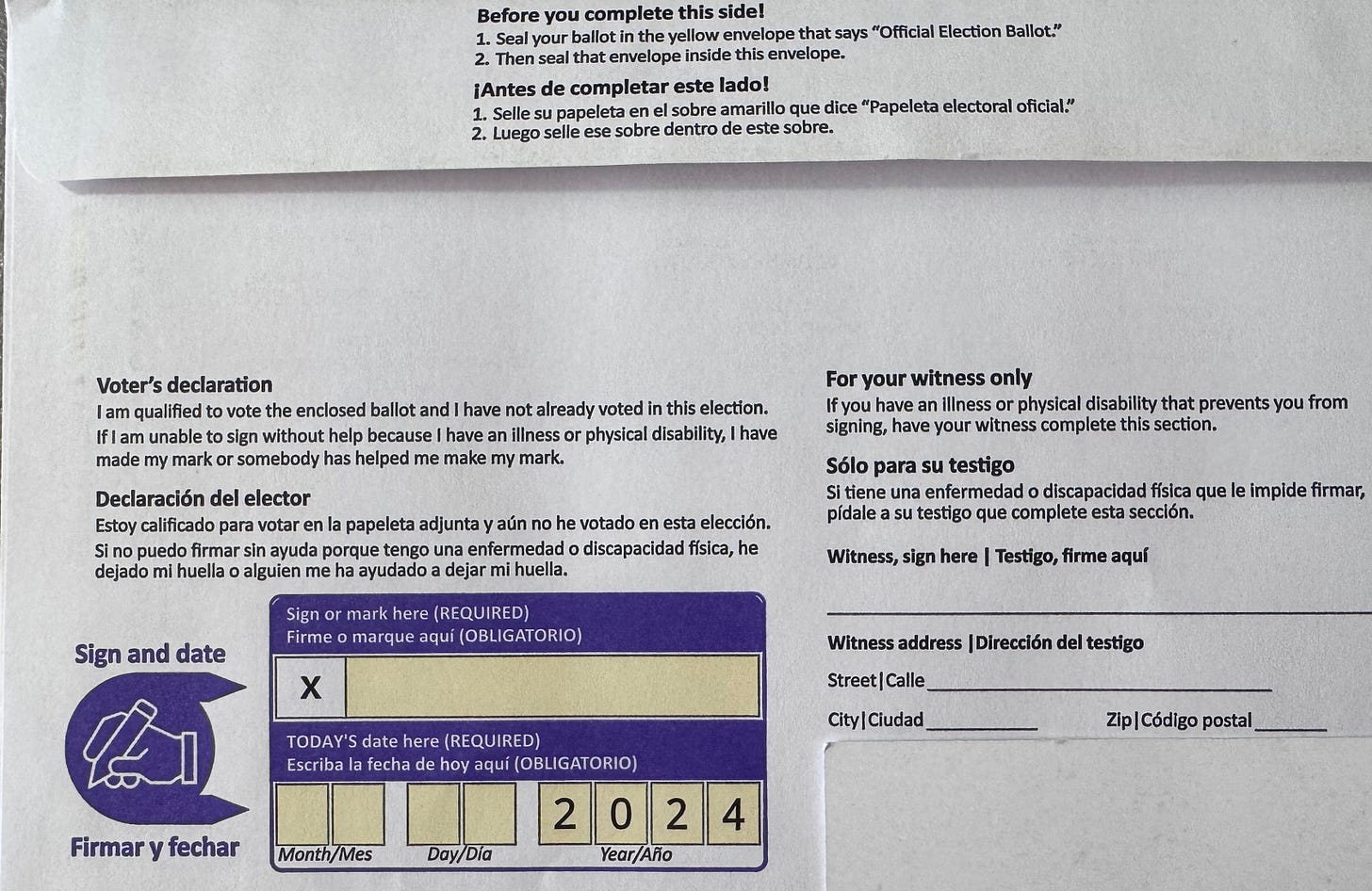State Supreme Court says it's too late to consider mail-in ballot case
Decision means that undated ballots won't count on Nov. 5

The state Supreme Court, in a Saturday evening order, left in place a requirement that return envelopes for mail-in ballots must be dated for their votes to be counted in the election.
The court said it was too close to the election to consider an emergency request – known as a King’s Bench case – from voting advocacy groups, who argued that rejecting ballots with improperly dated envelopes disenfranchised voters for a simple oversight.
In its brief order, the state Supreme Court said it will “neither impose nor countenance substantial alterations to existing laws and procedures during the pendency of an ongoing election.”
The lone dissent came from Chief Justice Debra Todd, who wrote the question was of “grave importance” and “imperative” that the court decide the issue before the election.
She said the courts, election officials, county election boards and voters “need clarity on this issue prior to Election Day when ballots will be canvassed. We ought to resolve this important constitutional question now, before ballots may be improperly rejected and voters disenfranchised.”
“While it’s disappointing that our motion for review was denied, the Pennsylvania Supreme Court still has not ruled on the merits of our argument that enforcing the handwritten date rule violates voters’ constitutional rights,” said a statement from the legal team in the case issued by the ACLU of Pennsylvania. “The handwritten date rule could disenfranchise tens of thousands of voters in the coming election. Voters should not be disqualified over an irrelevant human mistake.”
But the issue may still make its way to the state Supreme Court for a full hearing.
On Sept. 26, the Philadelphia Court of Common Pleas decided that misdated ballots from 69 city voters should have been counted based on the free and fair elections clause of the state Constitution. They cast ballots in special elections Sept. 17 for two state House districts in the city. The Republican National Committee and the Philadelphia Board of Elections appealed the case to Commonwealth Court.
“We hope that, when the next case is before them on this issue, [the state Supreme Court will] consider the important constitutional issue at stake,” the legal team said in its statement.
Asked why the state Supreme Court would consider the Philadelphia case when it just rejected the other ballot dating case without considering its merits, Andy Hoover, ACLU-PA communications director, explained the difference.
Pennsylvania not alone when it comes to rejected mail-in ballots
Pa. Supreme Court: Don't count undated or misdated mail ballots
The Philadelphia case, if it makes it to the Supreme Court, would come via appeal from a lower court, he said. “In the Philadelphia case, the court will have a decision from the Commonwealth Court to consider, whereas in our King's Bench case there was nothing from the lower courts.”
ACT 77
The dating requirement was included in Act 77, a bipartisan proposal that allowed universal mail-in voting in Pennsylvania and signed into law in 2019. The process was first used in 2020. Counties log the time and date when mail ballots are received so election officials know the ballots are received by the Election Day deadline.
But the dating of the return envelopes, as required by Act 77, soon became an issue as voters statewide either forgot to date the return envelopes or provided the wrong date. Democrats tended to vote by mail by margins of up to 3-1 over Republicans, and whether to county ballots became a partisan issue.
In the 2022 general election, nearly 10,000 ballots were rejected because of such errors, according to court filings in the case. In 2023, that figure was nearly 7,000; in the 2024 primary, thousands were rejected as counties followed guidance from the Department of State to refrain from counting undated ballots.
The issue of whether to count such ballots went before county, state and federal courts in at least a half-dozen lawsuits.
On Aug. 30, Commonwealth Court decided that the undated or misdated ballots should be counted. The Republican Party of Pennsylvania and the Republican National Committee appealed the decision to the state Supreme Court, which said the Commonwealth Court could not have decided the question because the lawsuit was filed against only two of the state’s 67 counties. That effectively meant that improperly dated ballots would not be counted.
In another attempt, the voting advocacy groups went to the Supreme Court with its request to hear the case on the constitutional issue but were rejected Saturday.



